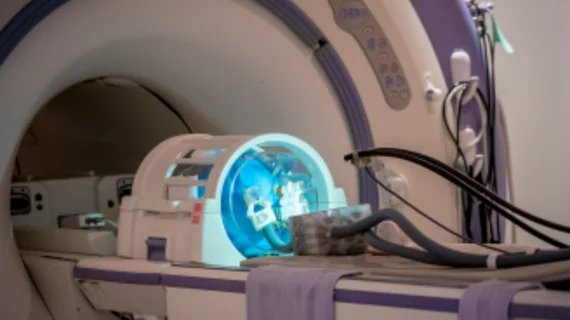Innovative robotic MRI system may improve neurosurgery for Parkinson's patients
Mechanical engineers and surgeons from the University of Hong Kong have recently developed what could be the world's first neurosurgical robotic system that can perform bilateral stereotactic neurosurgery on a patient inside an MRI machine.
Researchers—led by Kwok Ka-wai, PhD, an assistant professor of mechanical engineering at the University of Hong Kong—believe the system may improve treatment of Parkinson's disease and other neuropsychiatric disorders, while being a step toward safer and more accurate brain surgery, according to a University of Hong Kong news release from June 18.
Stereotactic neurosurgery, a treatment that involves locating targets of surgical interest using an external position system, has several potential applications, including brain biopsy and deep brain simulation (DBS).
For patients with neuropsychiatric disorders such as Parkinson's disease, DBS can be a beneficial procedure that helps restore normal nerve cell activity in the brain. However, DBS is very meticulous and demanding that can result in many surgical complications if completed accurately and timely.
"These surgical complications motivated the team to develop a compact robot guided by MRI, according to the news release. "This facilitates less invasive stereotactic procedures on the patient under general anesthesia, as surgeons could accurately control and evaluate the stereotactic manipulation bilaterally to the left and right brain targets in real-time."
Ka-wai and colleagues were able to successfully develop a magnetic resonance compatible tele-operated system driven by liquid that does not produce electromagnetic interference or reduces imaging quality during the robotic operation, according to the news release.
Additionally, the team designed a manipulator to perform dexterous movements in both left and right lobes of the brain.

